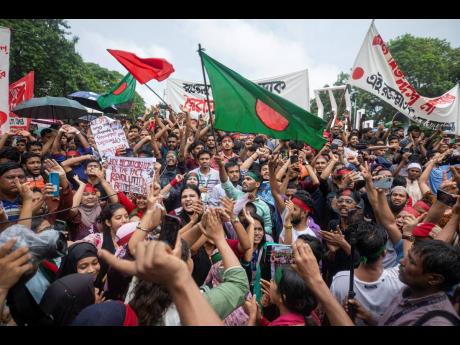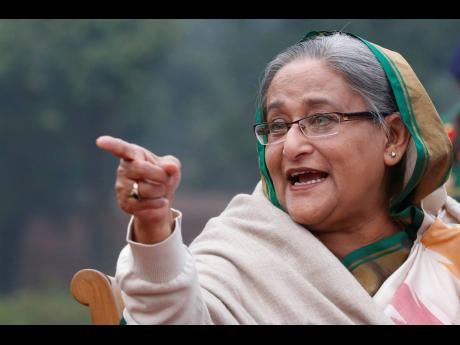PM resigns and flees country
DHAKA (AP):
Sheikh Hasina, the longest-serving prime minister in Bangladesh’s history, resigned and fled the country on Monday, bringing a tumultuous end to her 15-year rule as an extraordinary wave of protest succeeded in toppling her government.
Her ouster came after weeks of relentless protests and clashes with security forces that have killed nearly 300 people since mid-July, according to local media reports. What began as peaceful demonstrations by students frustrated with a quota system for government jobs unexpectedly grew into a major uprising against Hasina and her ruling Awami League party.
The recent upheaval was the largest and last crisis for the 76-year-old leader, the world’s longest-serving female head of government, who won a fourth consecutive term in January in an election boycotted by the main opposition amid concerns that the polls were not free or fair.
Hasina first became prime minister in 1996, and then returned in 2008 to win the office she held until Monday.
Analysts who have tracked her rise say her political life was driven by tragedy. On August 15, 1975, her father and the first leader of independent Bangladesh, Sheikh Mujib Rahman, was assassinated in a military coup.
That fateful night, while 28-year-old Hasina was in Germany with her younger sister, a group of army officers burst into the family’s Dhaka home and killed her parents, three other siblings and the household staff – 18 people in all.
Some say the brutal act pushed her to consolidate unprecedented power. It was also what motivated her throughout her political career, analysts say.
“Hasina has one very powerful quality as a politician – and that is to weaponise trauma,” Avinash Paliwal, a former university lecturer who specialised in South Asian strategic affairs, said in January ahead of the general election.
To Hasina, her father was the founder of independent Bangladesh after its forces, aided by India, defeated Pakistan in 1971.
After the assassination, Hasina lived for years in exile in India, then made her way back to Bangladesh and took over the Awami League. But the country’s military rulers had her in and out of house detention all through the 1980s until, after a general election in 1996, she became prime minister for the first time.


